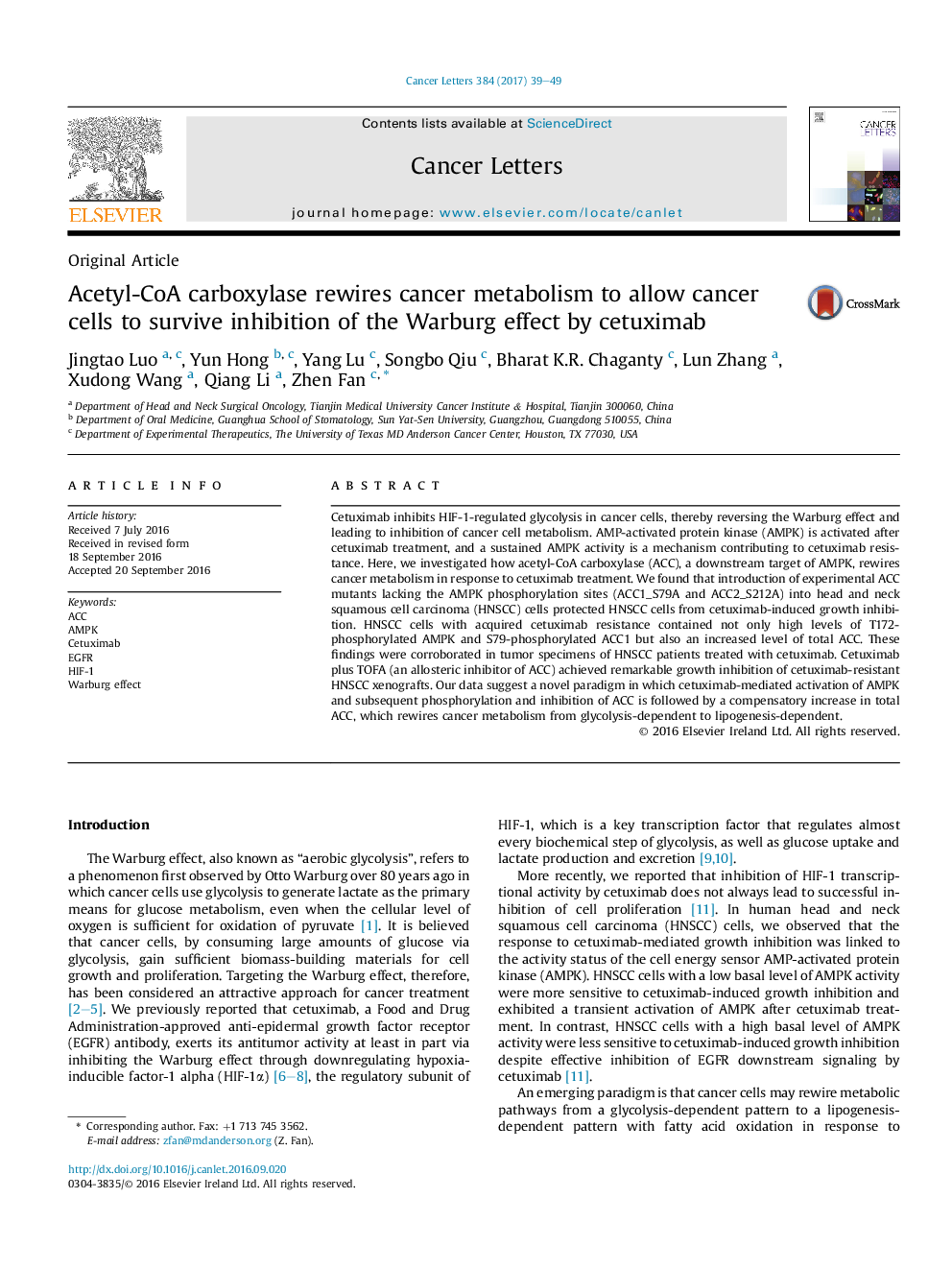| کد مقاله | کد نشریه | سال انتشار | مقاله انگلیسی | نسخه تمام متن |
|---|---|---|---|---|
| 5525744 | 1546685 | 2017 | 11 صفحه PDF | دانلود رایگان |

- ACC plays a critical role in maintaining cell survival in low glucose conditions.
- A post-cetuximab increase in total ACC contributes to cetuximab resistance.
- ACC rewires cancer metabolism from glycolysis-dependent to lipogenesis-dependent.
- Cetuximab plus ACC inhibitor enhances response of cetuximab-resistant HNSCC cells.
Cetuximab inhibits HIF-1-regulated glycolysis in cancer cells, thereby reversing the Warburg effect and leading to inhibition of cancer cell metabolism. AMP-activated protein kinase (AMPK) is activated after cetuximab treatment, and a sustained AMPK activity is a mechanism contributing to cetuximab resistance. Here, we investigated how acetyl-CoA carboxylase (ACC), a downstream target of AMPK, rewires cancer metabolism in response to cetuximab treatment. We found that introduction of experimental ACC mutants lacking the AMPK phosphorylation sites (ACC1_S79A and ACC2_S212A) into head and neck squamous cell carcinoma (HNSCC) cells protected HNSCC cells from cetuximab-induced growth inhibition. HNSCC cells with acquired cetuximab resistance contained not only high levels of T172-phosphorylated AMPK and S79-phosphorylated ACC1 but also an increased level of total ACC. These findings were corroborated in tumor specimens of HNSCC patients treated with cetuximab. Cetuximab plus TOFA (an allosteric inhibitor of ACC) achieved remarkable growth inhibition of cetuximab-resistant HNSCC xenografts. Our data suggest a novel paradigm in which cetuximab-mediated activation of AMPK and subsequent phosphorylation and inhibition of ACC is followed by a compensatory increase in total ACC, which rewires cancer metabolism from glycolysis-dependent to lipogenesis-dependent.
Journal: Cancer Letters - Volume 384, 1 January 2017, Pages 39-49